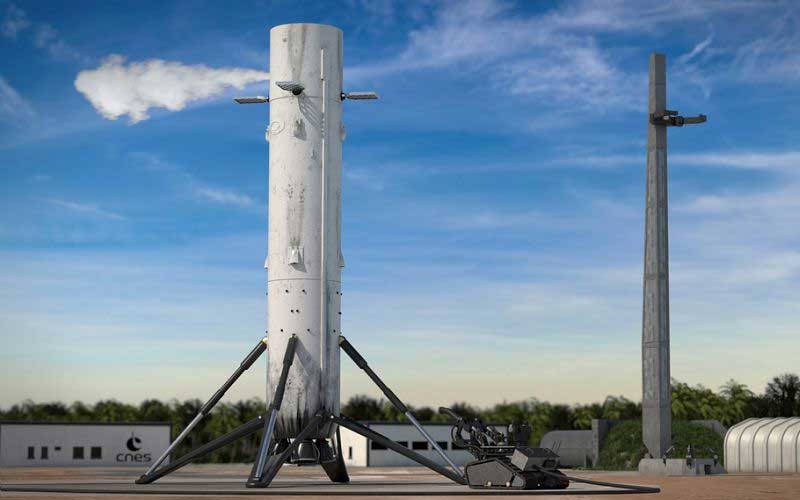
The European Space Agency has selected Rocket Factory Augsburg, The Exploration Company, ArianeGroup, and Isar Aerospace to develop reusable rocket technology.
On 9 October, ESA held its Future Space Transportation Award Ceremony in Paris. During the event, the agency announced the four awardees under two initiatives focused on the development of reusable rocket technology: the Technologies for High-thrust Reusable Space Transportation (THRUST!) project and the Boosters for European Space Transportation (BEST!) project.
According to an ESA Commercialisation Gateway announcement, the awarded companies will now begin contract negotiations with ESA to further develop and test their solutions.
THRUST! project awards
The THRUST! initiative aims to push forward the development of European liquid propulsion systems, targeting a demonstration of high-thrust stage combustion engine technology. Following the 9 October award ceremony, Rocket Factory Augsburg and The Exploration were selected to develop projects under this initiative.
The Exploration Company has already received backing from the French space agency CNES for the development of its Typhoon engine, which will be capable of producing 200 tonnes of thrust. The work being done for the THRUST! initiative will likely complement what is already been done to develop the Typhoon rocket engine.
RFA has already developed a staged combustion engine called Helix, which will be used to power the first and second stages of the company’s RFA ONE rocket. This engine does, however, only produce approximately 10 tonnes of thrust. As a result, the company will be developing an as-yet-unannounced new engine for the THRUST! Initiative.
THRUST! is the second high-thrust rocket engine development project that ESA has kicked off in as many months. In late September, the agency announced that it had awarded a contract to Pangea Aerospace as part of its Very High Thrust Rocket Engine initiative. The company is developing its Kronos staged-combustion rocket engine, which will be capable of producing approximately 200 tonnes of thrust.
BEST! project awards
The BEST! project was launched to stimulate the development of future reusable rocket first stages or boosters. The project’s results will be reviewed at the ESA ministerial council meeting in late 2025, where a decision on further development will be made. Following the 9 October award ceremony, ArianeGroup and Isar Aerospace were selected to develop projects under this initiative.
ArianeGroup is currently receiving funding from both ESA and the European Union to develop Themis, a reusable booster demonstrator that is expected to complete an initial hop test in 2025. The technology will have a direct application aboard a rocket being developed by the company’s microlauncher subsidiary, MaiaSpace. It is not clear if ArianeGroup will be further developing Themis as part of the BEST! project or if it is focusing on a new initiative.
Isar Aerospace is currently in the final stages of the development of its Spectrum rocket. The company is currently working towards launching an inaugural flight of the rocket before the end of 2025 from Andoya Spaceport in Norway. According to reporting from industry consulting firm Euroconsult, Isar Aerospace is also planning a larger version of the rocket, currently being referred to as Spectrum 2. This version of the rocket will increase its payload performance from one to four tonnes. While this larger vehicle will have the payload capacity to implement reusable rocket architecture, it’s unclear if this is the project that Isar is developing as part of the BEST! initiative.

